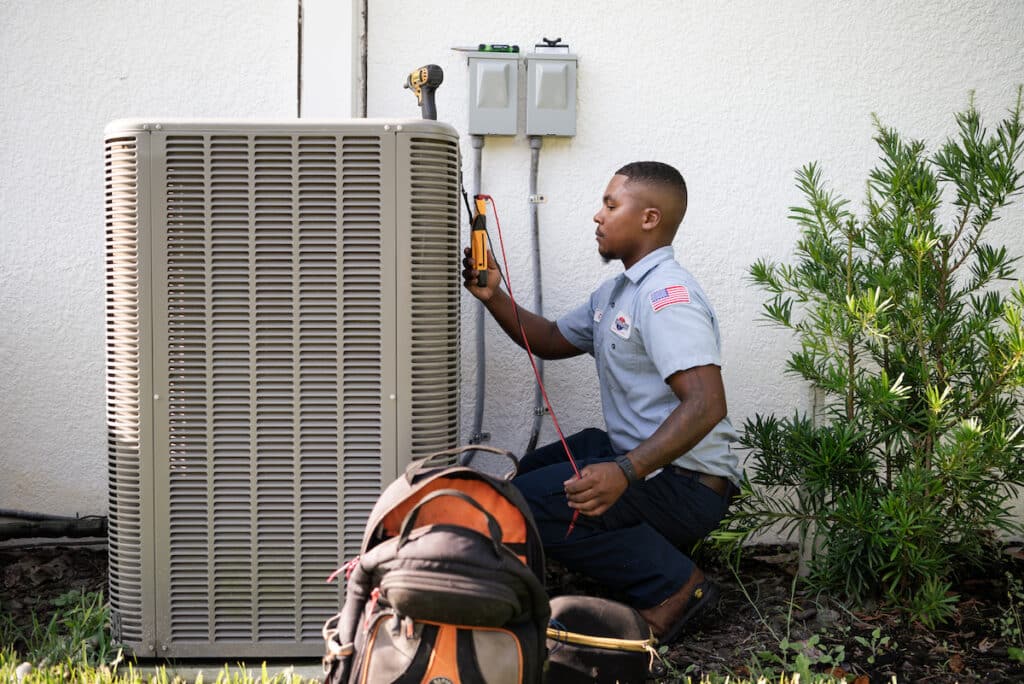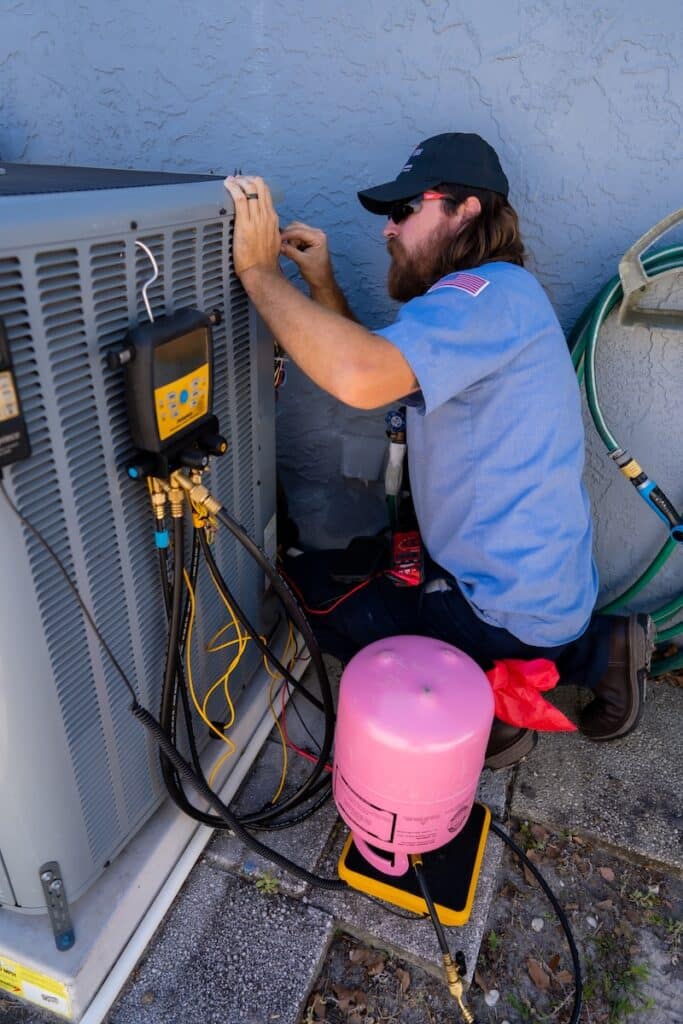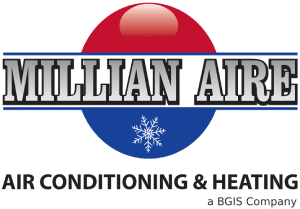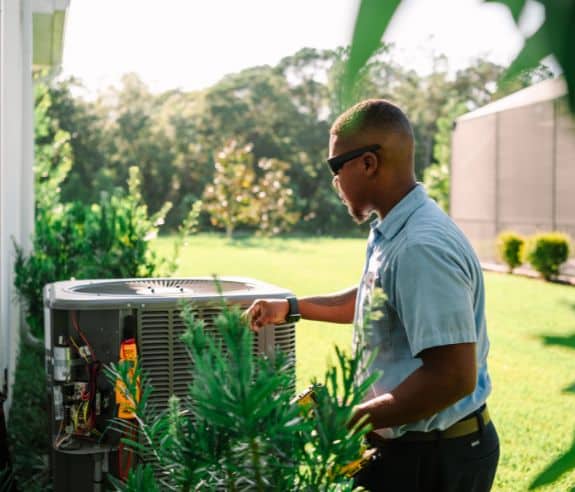
Delta T in HVAC is quickly becoming one of the most talked-about HVAC topics. And for good reason: understanding Delta T can help you keep your home more comfortable, lower your energy bills, and avoid costly repairs.
So, what exactly is Delta T, why is it so important, and how can Millian Aire help you make sure yours is just right? Let’s break it down.
What is Delta T in HVAC Systems?
In the HVAC world, Delta T (pronounced “Delta Tee”) stands for the temperature difference between the return air (the air pulled from inside your home) and the supply air (the air blown back out after being heated or cooled).
So, what is Delta T in HVAC systems? In simple terms:
Delta T = Return Air Temperature – Supply Air Temperature
This difference tells you how effectively your system is transferring heat or removing it. If the temperature change is too small or too big, your system could be struggling, costing you money and comfort.
How to Check Your Delta T (A Simple DIY Guide)
If you’re curious whether your system’s Delta T is healthy, you can do a quick test at home with a basic thermometer. Here’s how:
- Run your HVAC for at least 15 minutes so it reaches a steady state.
- Measure the temperature of the air going into the return vent (where your system pulls indoor air back in).
- Measure the temperature at the nearest supply vent (where cooled or heated air blows back out).
- Subtract: Return Air Temp – Supply Air Temp = Your Delta T.
👉 Tip: For the most accurate reading, check during the hottest part of the day (for cooling) or coldest (for heating).
If your Delta T is far outside the typical range (16–22°F for cooling), it’s time to dig deeper or call a pro to inspect your system.
What’s a Normal Delta T?
- For cooling systems: A typical Delta T in HVAC systems in Florida is between 16 and 22 degrees Fahrenheit.
- For heating systems: It’s usually 30 to 40 degrees Fahrenheit.
If your Delta T falls outside these ranges, it could mean your system is underperforming or overworking, and both can shorten your HVAC unit’s lifespan and raise your utility bills.
Why Delta T Matters for Homeowners and Technicians

For homeowners:
- Delta T affects your home’s comfort and energy efficiency.
- A proper Delta T means your system is removing just the right amount of heat (or adding it in winter).
- It helps maintain healthy indoor air quality by managing humidity and airflow.
For HVAC technicians:
- Delta T in HVAC is one of the first things a pro checks to diagnose issues like low refrigerant, airflow restrictions, dirty coils, or duct leaks.
- It provides insight into more advanced system behavior, including blower motor speed, suction pressure, and overall system design.
Why Delta T is Extra Important in Florida
Florida’s tropical heat and humidity are tough on air conditioners. If your ducts leak or your system is low on refrigerant, moisture can build up fast, driving up humidity indoors and forcing your AC to run longer and harder to hit the set temperature.
This not only throws off your Delta T but also invites mold, mildew, and poor indoor air quality.
👉 A balanced Delta T keeps humidity under control, maintains even temperatures, and saves you money every month.
Factors That Affect Delta T
Delta T doesn’t exist in a vacuum. Several things can throw it off:
- Ambient temperature: Extreme outdoor temps can push your system harder.
- Indoor humidity: High humidity makes it harder to remove heat.
- Blower motor speed: If the fan blows too fast, the air may not spend enough time over the coil to be cooled properly.
- Refrigerant charge: Too much or too little refrigerant impacts heat transfer.
- Dirty components: A clogged evaporator coil or air filter restricts airflow.
- Duct design & leaks: Poorly sealed or leaky ducts mix in unwanted warm or humid air.
Common Problems Linked to Low or High Delta T in HVAC Systems

Low Delta T in HVAC systems (smaller than normal temperature difference) could be caused by:
- Low refrigerant charge
- High humidity levels
- Dirty or clogged filters
- Restricted airflow due to a blocked coil or fan issue
- Leaky or poorly insulated ducts
High Delta T in HVAC systems (larger than normal) can mean:
- Blocked supply vents
- Fan running too slowly
- An oversized unit cooling air too fast without removing enough humidity
- Faulty duct sensors or pressure imbalances (delta-p issues)
How to Spot Delta T Problems
Some telltale signs your Delta T might be off:
- Your HVAC cycles on and off too frequently (short cycling)
- Rooms feel stuffy or have hot/cold spots
- The air coming from vents isn’t as cold (or warm) as expected
- Your energy bills keep climbing with no change in usage
How Millian Aire Can Improve Your Delta T
At Millian Aire, we don’t just measure Delta T; we find and fix the root cause, so your system runs like new. Here’s how we do it:
- Expert Diagnostics: Our certified technicians check refrigerant levels, blower motor speed, suction pressure, and ductwork, all key factors that impact Delta T in HVAC systems.
- Duct Sealing with Aeroseal: If leaky ducts are letting in humid attic air, we use Aeroseal technology to seal hidden leaks from the inside, no mess, no tearing into walls.
- Coil & Filter Cleaning: We clean evaporator coils and replace filters to restore smooth airflow and optimal heat transfer.
- Smart Maintenance Plans: Regular tune-ups keep your system balanced season after season, protecting your investment and comfort.
- Financing Options: Big fixes don’t have to break the bank. We offer:
- PACE Financing: $0 down, repaid through your property taxes
- Wells Fargo Financing: flexible monthly payments
- 0% interest up to 60 months on select new Trane systems
When to Call Millian Aire
If you notice:
- Uneven temperatures from room to room
- High indoor humidity that won’t go away
- An AC that never stops running or turns on/off too much
- Surprising spikes in your electric bill
…it’s time to let our experts check your Delta T and restore your comfort.
Don’t let a hidden temperature imbalance drain your wallet and comfort. Trust Millian Aire to keep your system perfectly balanced for Florida’s unique climate — fast, affordable, and with no surprises.
📞 Call (727) 233-5566 now or schedule your service online for a free estimate and learn about our flexible financing and same-day service.

Delta T in HVAC FAQs
Q: What is Delta T in HVAC?
Delta T is the difference between the air your system takes in and the air it sends back out — it shows how well your AC or heater is working.
Q: What’s a normal Delta T in HVAC?
Typically 16–22°F for cooling, 30–40°F for heating, but Florida’s humidity can shift this range slightly.
Q: How can I improve my Delta T?
Keep filters clean, schedule annual maintenance, and have your ducts sealed professionally if needed.
Q: Can Millian Aire help if my Delta T is off?
Absolutely! From diagnostics to duct sealing to full system tune-ups, our local team has you covered.



